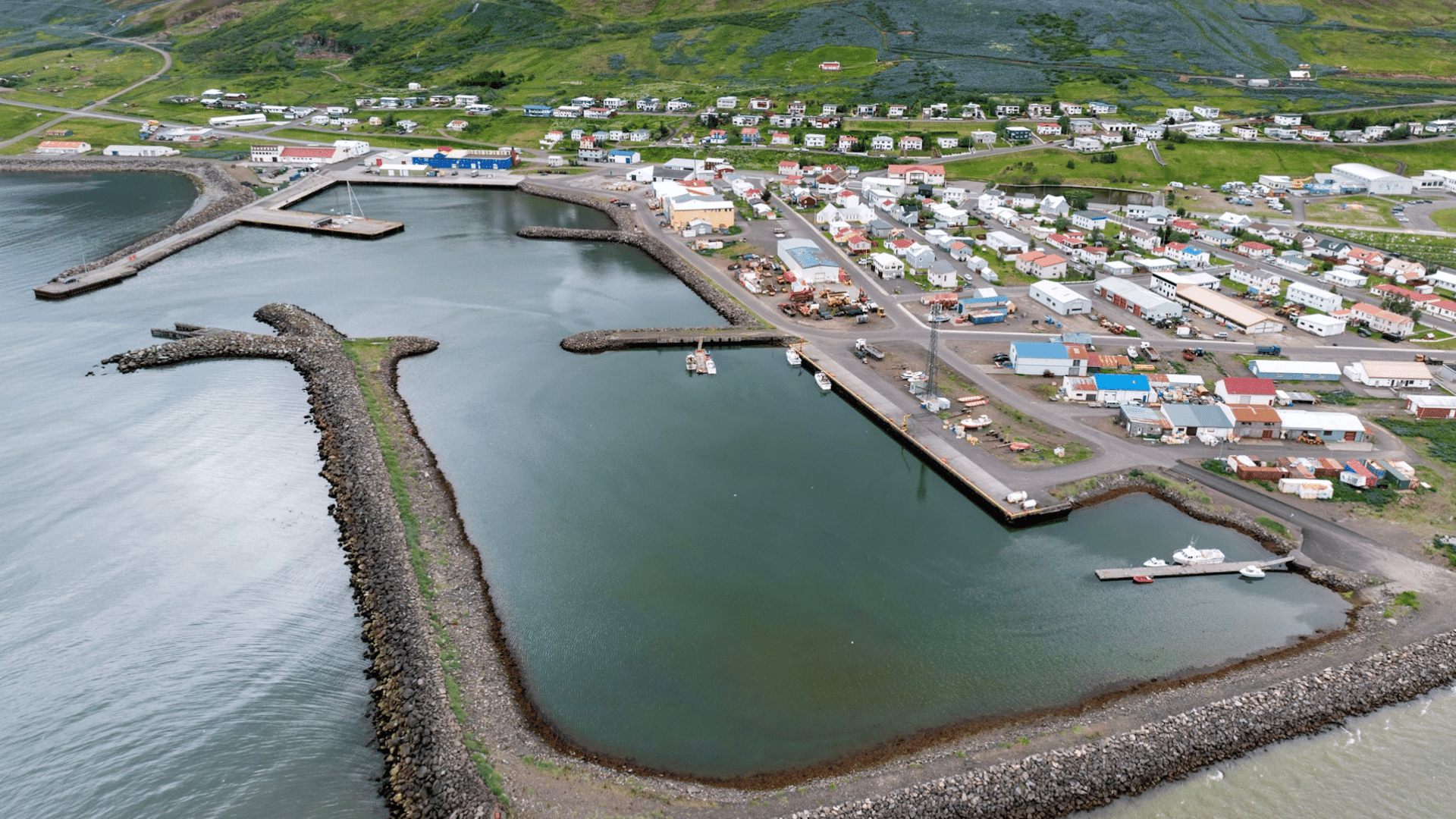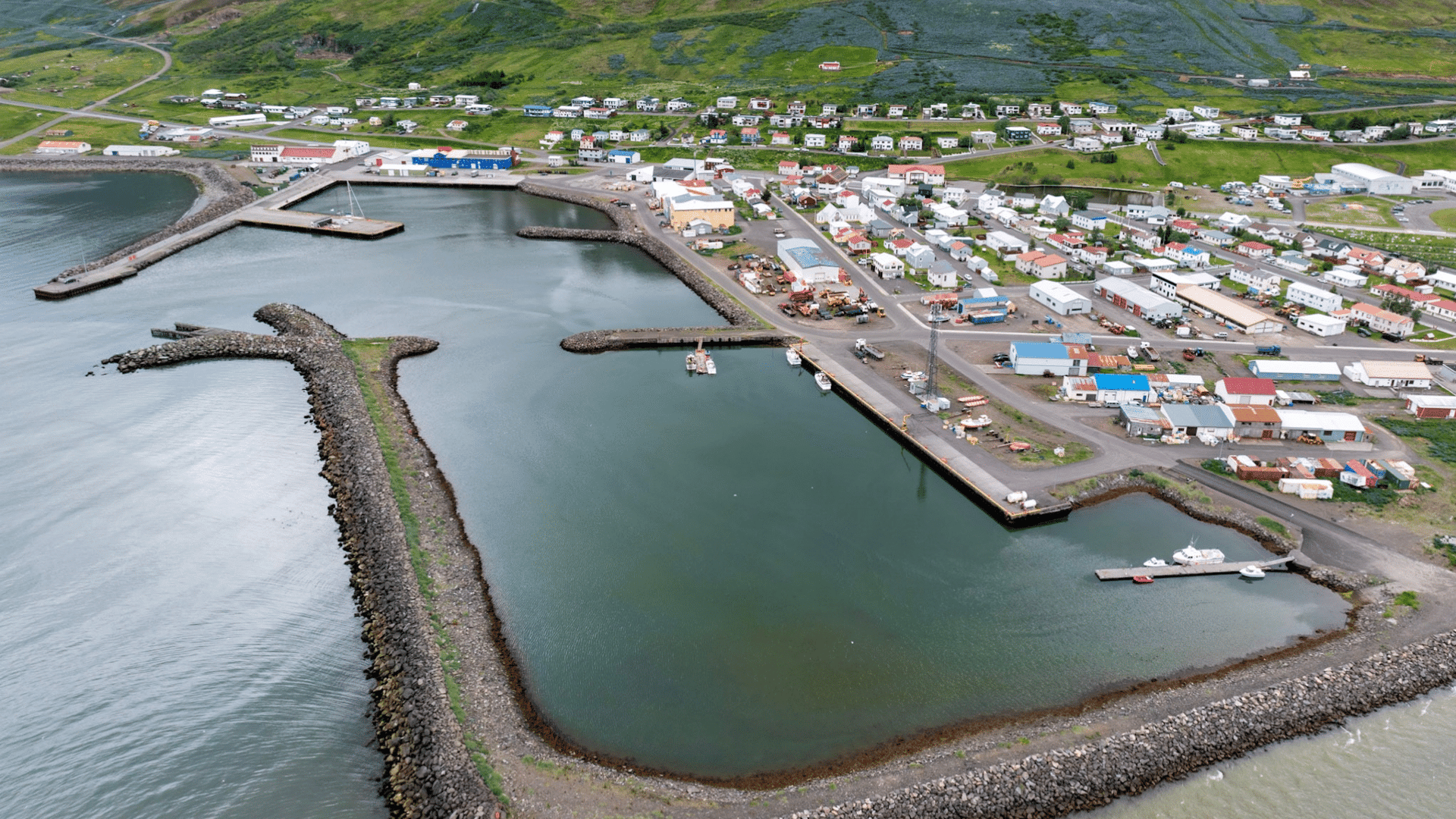


In recent years, various individuals and companies have expressed interest in establishing aquaculture and salmon farming in the northeast region of Iceland, particularly in Eyjafjordur, as the fjord presents ideal conditions for this type of activity due to several factors, including weather, wave patterns and ocean currents. Therefore, many companies have retrieved licenses for planned production for cod and haddock within the fjord, near Skjaldarvík, and for salmon production and mussel farming at four locations within the fjord. Consquently, discussions surrounding the structure of sea pen farming and aquaculture have been ongoing for some time.

About us
Salmon farming has seen substantial growth in recent decades, with an export value nearing 46 billion ISK in 2023, making it a key contributor, accounting for approximately 1.5% of the global production. Concurrently, employment in Iceland’s fish farming sector has significantly increased, with over 83% of these jobs located in rural regions and in 2023, the income of individuals working in the sector amounted to more than 8,6 billion ISK. As a result, the industry in Iceland offers substantial growth prospects, with projections estimating volume of production in aquaculture to reach around 245,000 tonnes and value creation to be about 242 billion ISK by 2032.
Kleifar Fish Farms plans to develope a minimum of 20,000 tons of salmon production annually, utilizing both land and fjords on the Troll Peninsula and in Eyjafjordur. The production setup is planned as follows:
Siglufjörður: Smolt facility and processing of fully grown salmon from sea pens, leveraging existing real estate and infrastructure located at both harbours.
Ólafsfjörður: Salmon will be farmed on land to minimize time spent in sea pens, using pens located in an underutilized section of the town's harbor which will also accommodate well boats.
Siglufjörður, Héðinsfjörður, Ólafsfjörður og Eyjafjörður: Sea pens will be established in the fjords.

Based on analysis on the development of salmon farming in the Westfjords and plans for similar projects, it can be assumed that the project will create up to 170-180 jobs in the region, with great emphasis being placed on environmental harmony. The representatives of Kleifar are aware that the premise for the industry to be allowed to flourish and that the local environment benefits from it, the local authorities where fish farming takes place, need to receive a fair share of the resource that can used for infrastructural development. Neighbouring local authorities will therefore be handed over an ownership stake in Kleifar to support settlements and promote economic growth.
Leading the project are Róbert Guðfinnsson, a co-owner of Hólshyrna and founder of Genís biotechnology company, who brings decades of experience in the fishing industry and aquaculture, and Árni Helgason, a contractor based in Ólafsfjörður, both of whom have been instrumental in significant business developments in the North.
Kleifar Fish Farms project manager is Vigdís Häsler, attorney, with over 20 years of legal expertise and experience in strategic development.
The main goals of Kleifar fish farms are to:
Build a profitable business that attracts investors and capital.
Strengthen business activities and settlements in the North.
Utilize the existing infrastructure in the municipalities to speed up development and increase the efficiency of the project.
Develop an operating system that can form a long-term harmony of salmon farming , for the benefit of the community.

Aiming towards a sustainable society
Fish farm
Kleifar fish farms will be based on the best possible technology to maximize well-being of the fish. This way we can produce a sustainable and healthy product.
The environment
Kleifar fish farm will harmonize its industry in accordance with the environment, as it is our duty to manage our resources well. We will minimize the environmental footprint of the production by using the best technology available and knowledge at all times.
Community and settlement
Kleifar fish farms is based on the fundamental idea that society and settlement should enjoy hosting the company's activities. It is important to us to offer a good working enviornment and that the community and the settlement will prosper alongside the development of the fish farm.

The area
The North East region spans 22,735 km², stretching from the Trolla Peninsula in the west to Eyjafjörður and Þingeyjarsýslur in the east, reaching Sandvíkurheiðar between Bakkaflói and Vopnafjörður. This region comprises of thirteen municipalities with a population of approximately 30,000. The municipalities neighboring the proposed development area include Fjallabyggd, Dalvíkurbyggd, Svalbardsströnd, Hörgársveit, Grýtubakki, Eyjafjardarsveit, and Akureyri.
The North East boasts of a diverse industry landscape, which is one of its key strengths and fosters robust business development and innovation. Agriculture and the fishing industry serve as the region's foundational industries. In Akureyri, located by Eyjafjörður, a strong knowledge base has been established at the University of Akureyri, offering critically important programs in fisheries studies and aquaculture. Additionally, Háskólinn á Hólum features a well-regarded aquaculture and fish biology department.



